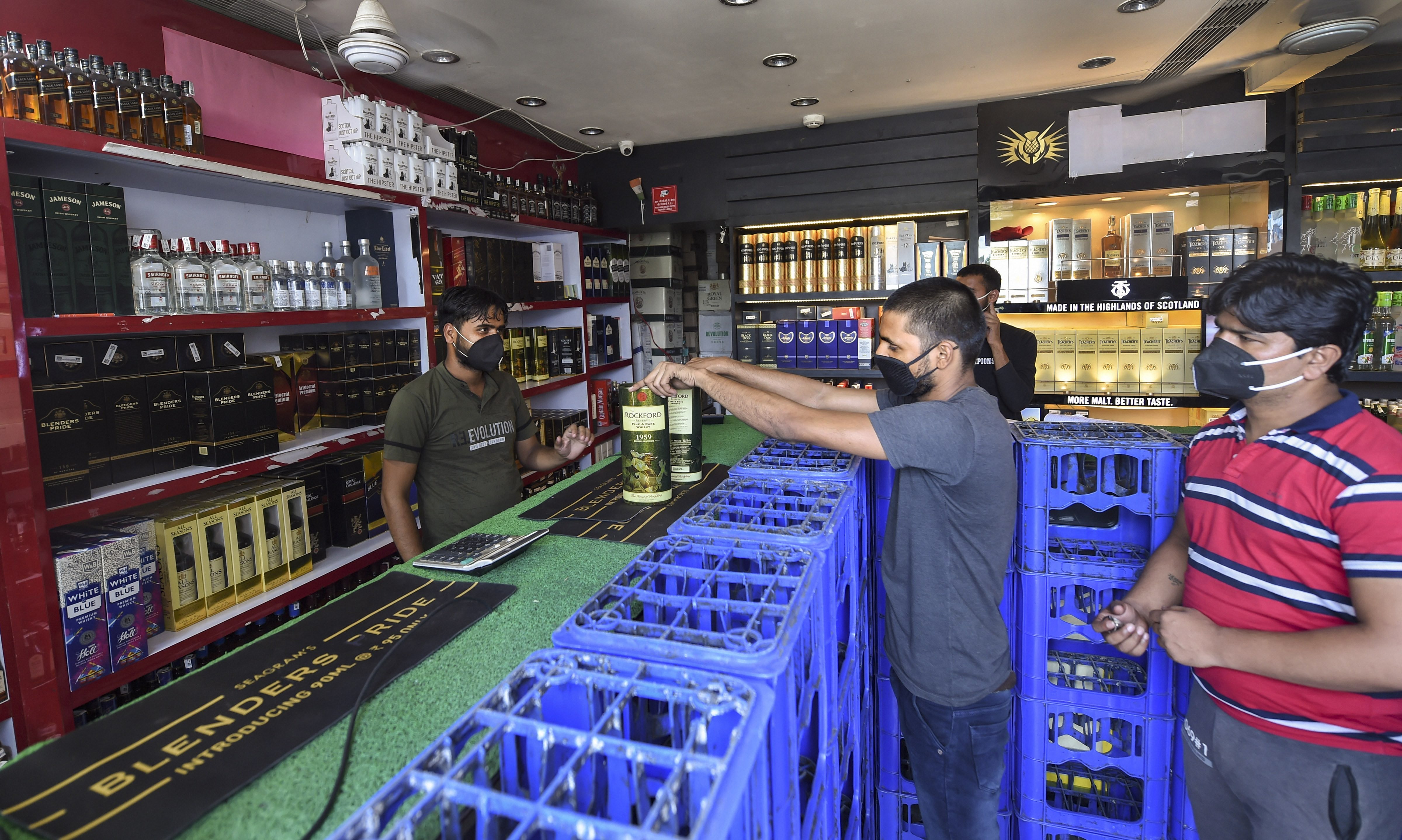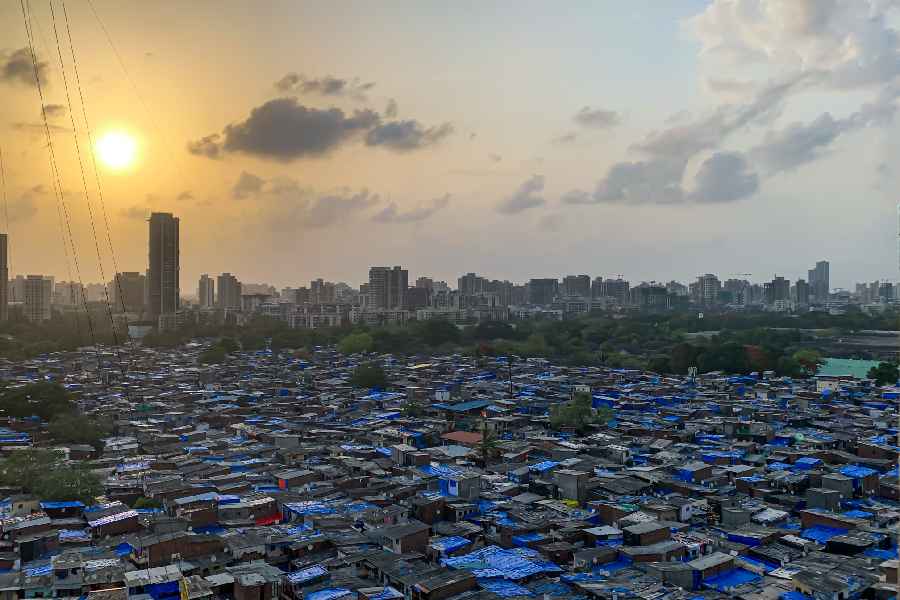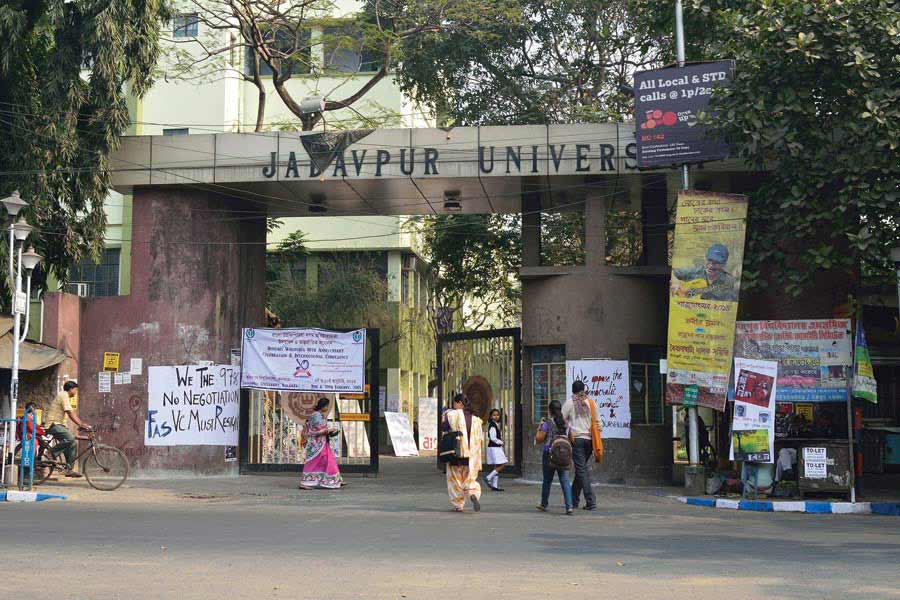Sir — The crowds in front of liquor shops are thinning — not because people are abstaining from drinking but because food delivery apps are now also home delivering alcohol. People need to upload some form of identification on the app to prove that they are above 21 years of age. But is this foolproof? Fudging the date of birth on identity cards is not difficult in the age of Photoshop. What if children use the app to order alcohol? It is not always possible to tell how old a person is just by seeing them. How, then, can the safety of minors be ensured? This plan should have been thought through.
Roshni Sen,
Calcutta
Empty plates
Sir — Several embankments in the Sunderbans were breached on the night of Cyclone Amphan. Swollen rivers in high tide and blistering tidal waves inundated villages on the delta coastlines. This has broken the backbone of local food security. Agricultural fields, contaminated with saline water, will not yield paddy and vegetables; the ponds can no longer sustain fish cultivation. In a region with no industrial or commercial labour, self-sufficiency has been the key to prevent starvation and malnutrition.
Herein lies the biggest challenge of planning a response to Cyclone Amphan. Given that Covid-19 has paralysed tourist inflows into the Sunderbans and robbed it of a large source of revenue, a micro approach facilitating direct relief operations is the need of the hour. Clusters of villages in the inner delta areas should be the immediate focus.
Food security must be addressed through the revival of agricultural land and water bodies. Skills training and alternative livelihood development, too, would be beneficial. Animal husbandry, food-processing linkages, handicrafts and solar power have much potential in changing lives in the Sunderbans.
Many well-meaning organizations and citizen-groups are venturing towards the Sunderbans to deliver aid. I suggest they plan their trips so as to reach the low-lying riverside villages that have been severely affected. Food security, with a composite package to prevent malnutrition, must be looked into. This apart, good quality tarpaulin sheets for damaged roofs is a critical requirement. Since several villages were submerged by saline water, large mosquito nets will help prevent an outbreak of malaria. Prior identification of needy beneficiaries through local welfare bodies and plans for effective transportation would help amplify the effectiveness of relief efforts.
Terence A. Mandle,
Calcutta
Same old problems
Sir — A new study has found that we need to send out at least 110 people to Mars in order to build a self-sustaining civilization there. One fails to understand why humans cannot spend more time and resources on improving the situation on planet earth. Mindless consumption — at a pace far greater than can be sustained by the earth’s process of regeneration — continues unchecked while man builds castles in the air about colonizing other planets. And where would the resources required to build a colony on Mars come from? It would prove to be a further drain on earth’s resources.
There is another factor that needs to be considered here. If we are successful in colonizing Mars, who are the ones who will get to live on the red planet? Will it be the poor, who, with no purchasing power and thus no say of their own, will be pushed off to fend for themselves in an inhospitable and unknown atmosphere? The other scenario is in case Mars does become habitable — going there will not be cheap. In such a situation, it will be the rich who abandon a dying planet earth and its poorer inhabitants and leave for Mars, taking along with them divisions and greed that are the crux of the problem. Life on Mars, then, will not be much different from life on earth.
Ibn Khalid,
Gorakhpur
Sir — No matter which planet human beings go to, consumerism and greed will ensure that destruction follows them there.
P. Goswami,
Guwahati










